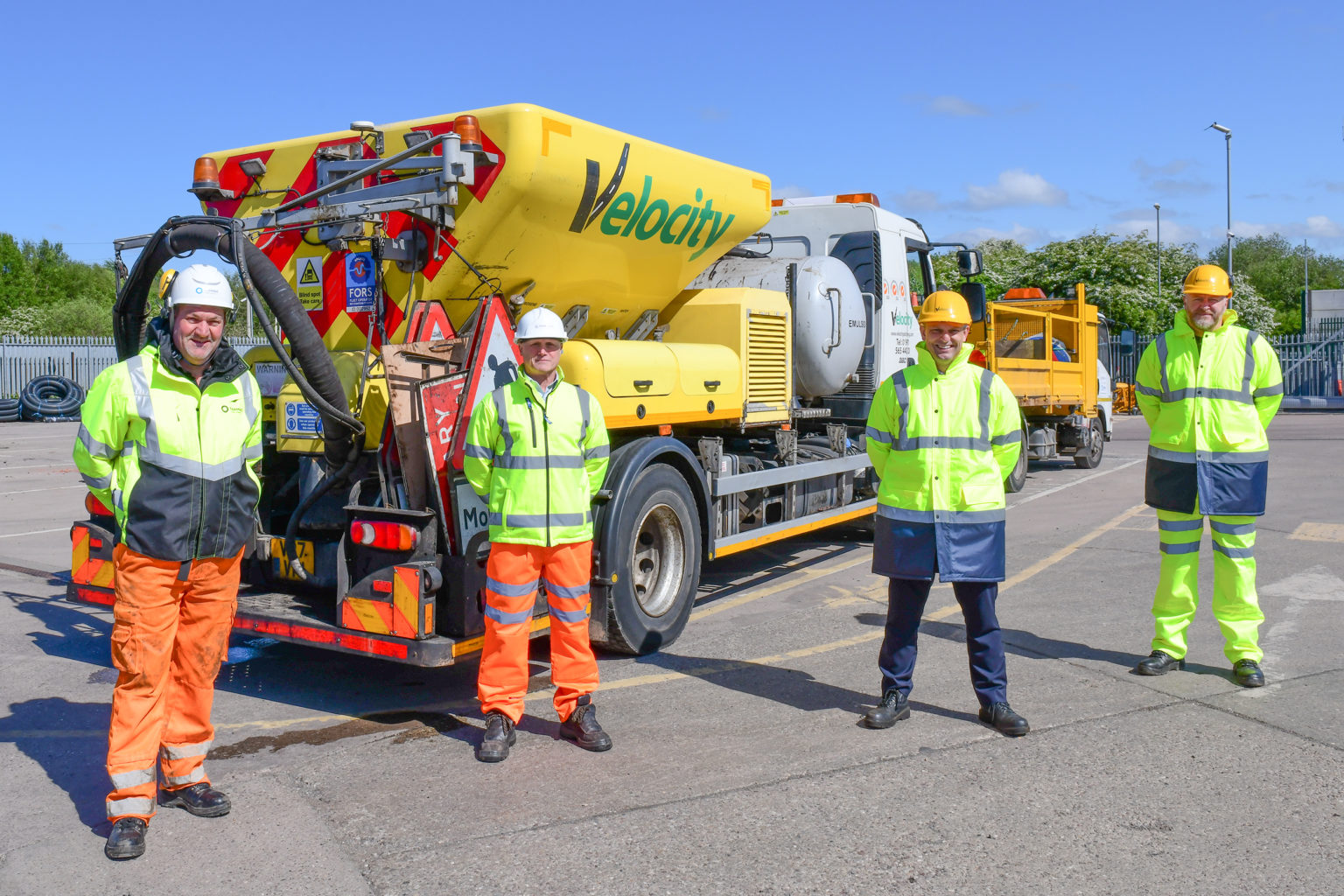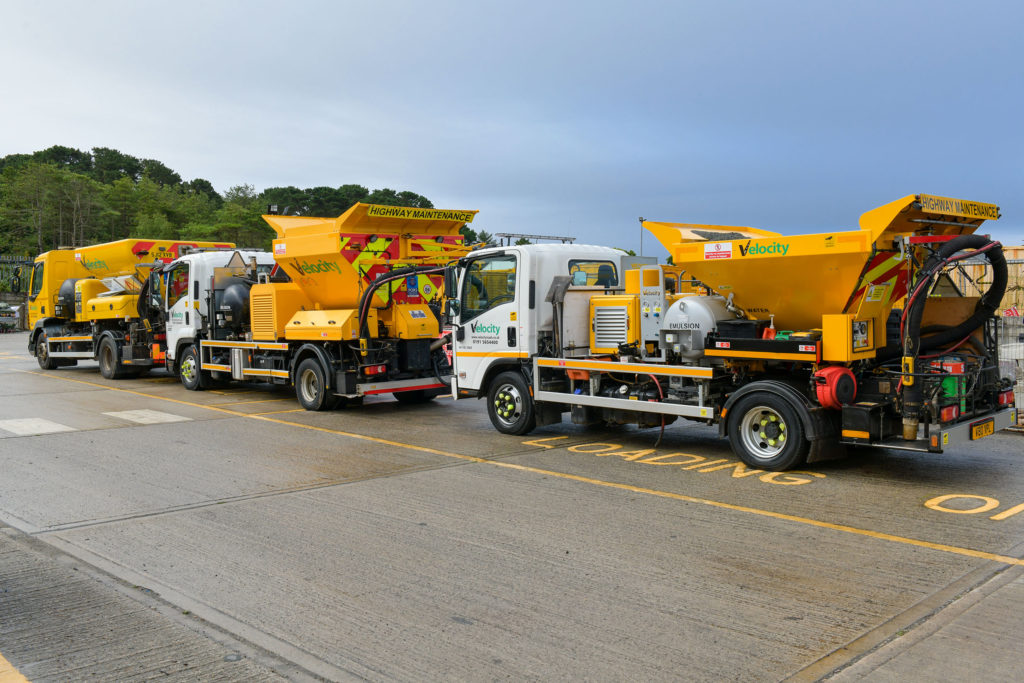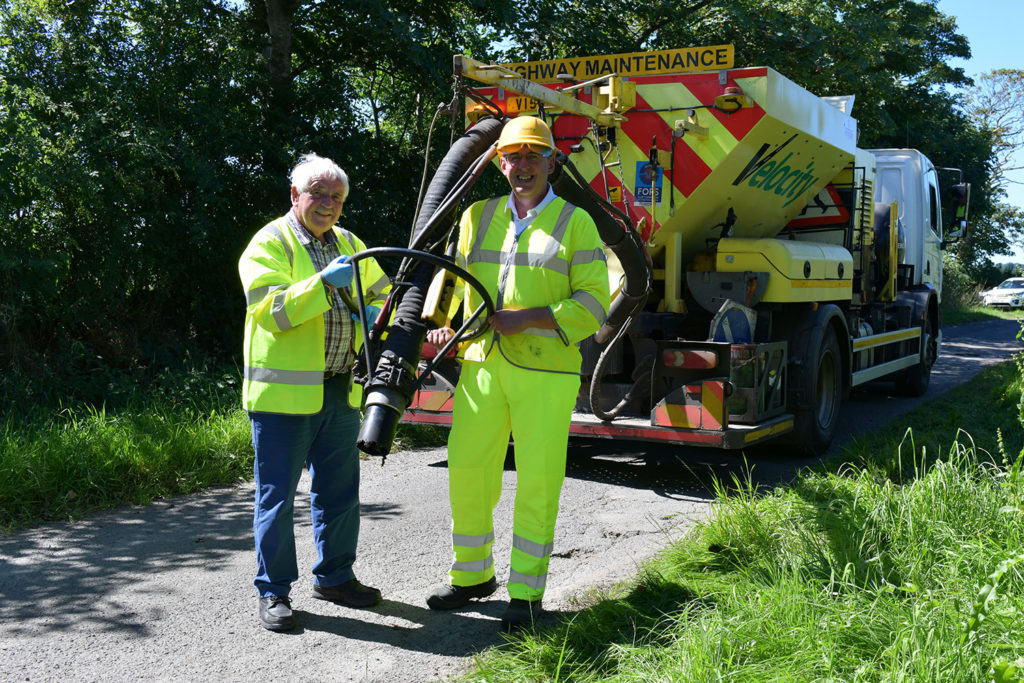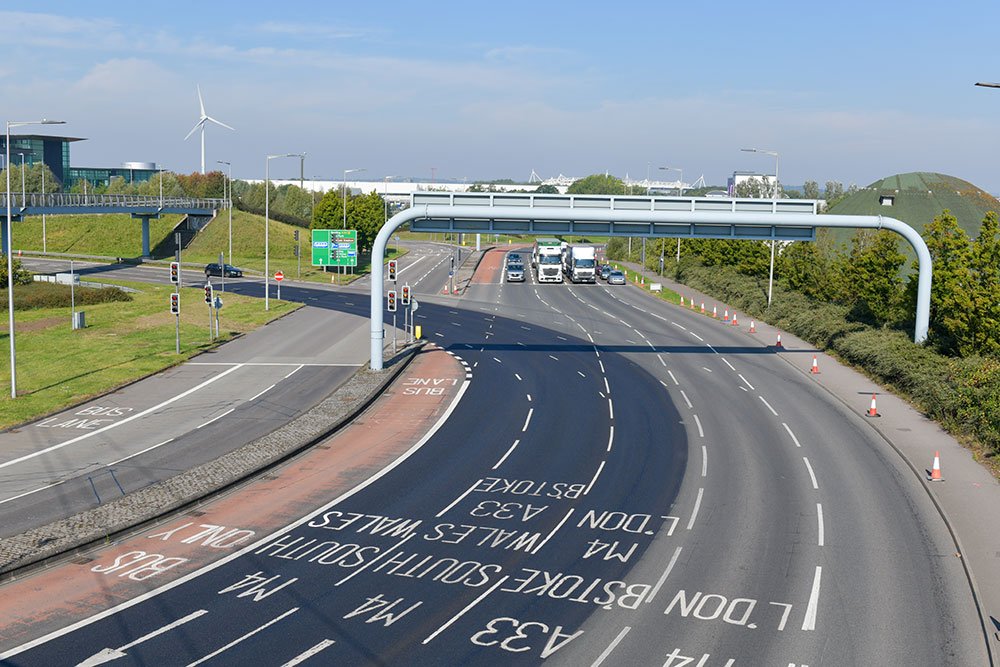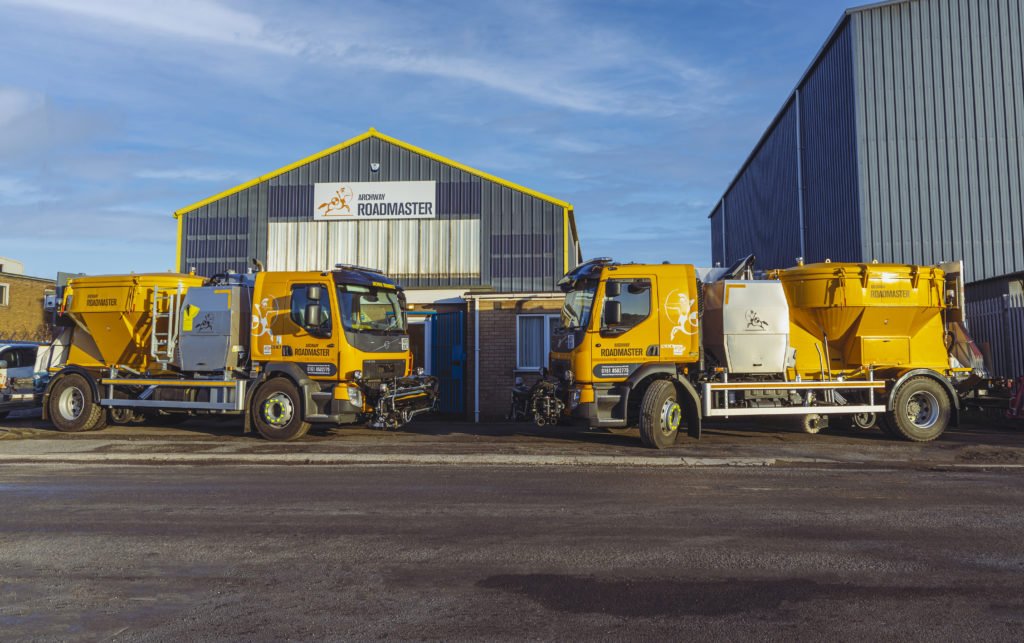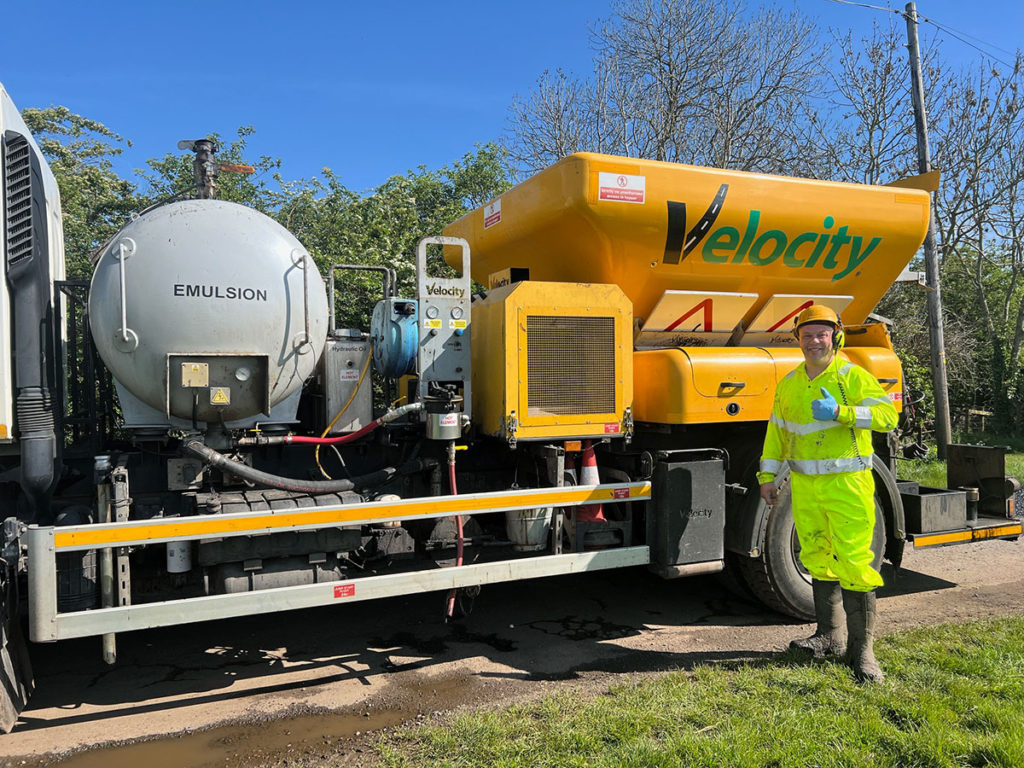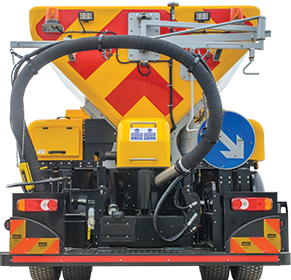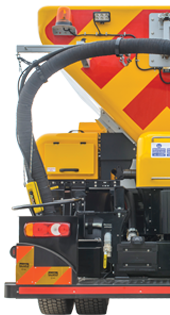Road repair specialist Velocity fixed over 50,000 potholes throughout the UK during the lockdown.
The spray-injection patching technique pioneered by the company requires a crew of two or three depending on location, lending itself well to mitigating the ongoing restrictions required by social distancing. Each machine is capable of carrying out up to 200 repairs per day.
The company introduced additional measures to protect the workforce and general public, including the addition of a secondary vehicle to prevent operators travelling together.
With local authority resources stretched, some highways maintenance teams increased their use of spray-injection patching with Velocity to enable essential and planned maintenance works to be carried out.
Dominic Gardner, Velocity’s managing director, said: “Like most companies, Coronavirus has had a big impact on Velocity, but we need to keep things in perspective. That impact is trivial compared to the personal tragedy that surrounds us.
“We were quick to take steps to protect our workforce, adjusting our safe working practices to be able to keep working without restricting the service we offer our customers.”
During the lockdown period the company continued to mobilise contracts, including working with new customers. From the beginning, Walsall Council and term-maintenance contractor Tarmac worked with Velocity to keep their roads in a safe condition after the winter weather.
Richard Pohribnyj, Walsall Council’s highway asset manager, said: “Local Authorities across the country have taken very different approaches to keep their highway networks safe and serviceable. For Walsall it has meant increasing the use of Velocity machines, where we’ve gone from one machine to two machines in an effort to carry out reactive and essential repairs in a manner that maintains highway safety across the network.
“This has been backed up by robust risk assessments and method statements that ensures social distancing to protect the workforce and the general public.”
Digitalisation of processes and procedures has enabled the company to reliably manage safety, quality and reporting, sharing data in real-time with customers while minimising contact. Supervision of crews working at remote locations throughout the UK has been transformed with the introduction of videoconferencing, with operators, supervisors and management sharing the latest updates and instructions and offering the opportunity to ask any questions or share any concerns.
Dominic Gardner said “I’m very proud of the whole team for the way that they’ve reacted and adapted to the situation, developing new processes in order to keep our workforce and the public safe at all times. We currently have some limited capacity, and we’re able to go wherever we’re needed.”

